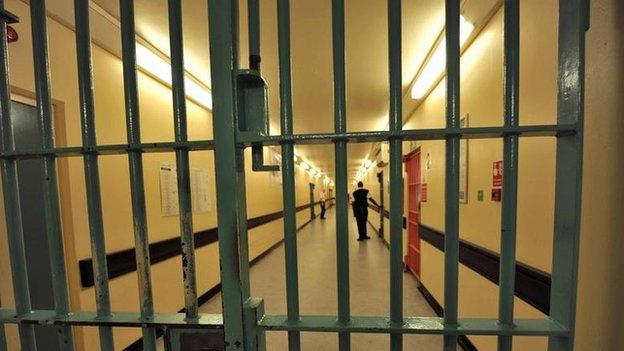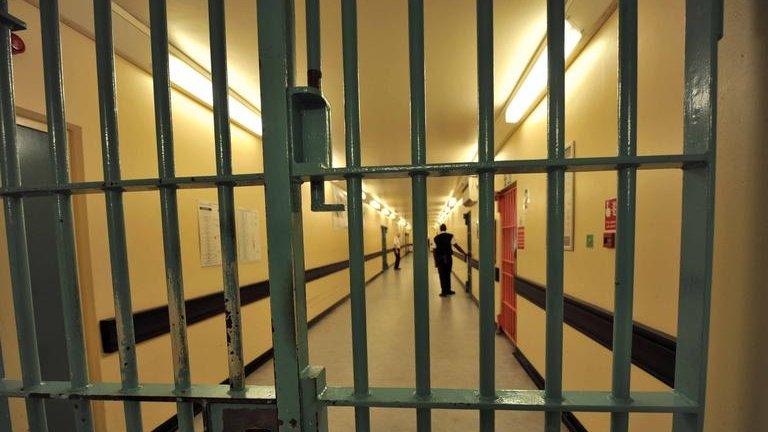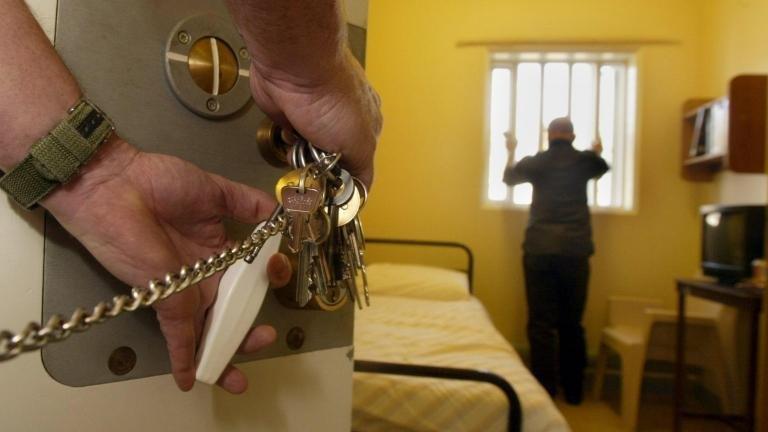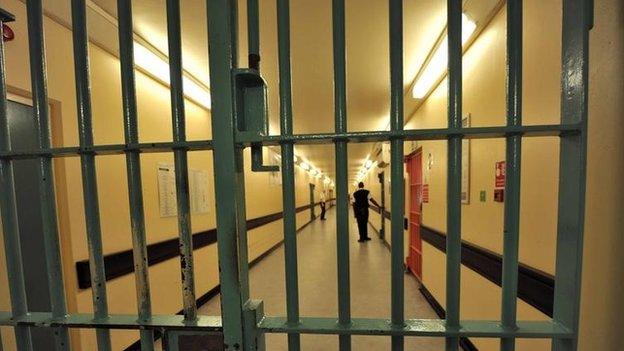Concern raised over changes to probation service
- Published

Trade union Napo warned the service in rural parts of north Wales, Brecon and Aberystwyth might suffer
Planned changes to the probation service are "dangerous" and "needless", an MP has said.
By the beginning of next year, 70% of its work in England and Wales will be run by private companies and charities.
The UK government said it will make the system more robust and will cut reoffending rates.
But Plaid Cymru MP Elfyn Llwyd, who is a member of the justice committee, told BBC's The Wales Report he fears for public safety.
'Stubbornly high'
They will supervise 200,000 low and medium-risk offenders each year, while a new public sector organisation called the National Probation Service (NPS), will supervised and rehabilitate 31,000 high-risk offenders.
Companies involved will be paid based on their results and the UK government says the changes will create a more efficient system.
But Mr Llwyd, who represents Dwyfor Meirionnydd, has attacked its motives for the changes.
"What we've got is the dismantling of a very professional highly regarded service, for what I believe to be purely dogmatic reasons," said Mr Llwyd.
"In other words - private good, public bad."
"I fear for the public services and I fear for public safety, because this experiment is a dangerous, and may I say, needless one as well," he added.
Napo, external, the probation officer's trade union, opposes the changes and warned the service in rural parts of north Wales, Powys and Aberystwyth might suffer.
'Invest in system'
It said the new system will restrict the availability of staff to provide cover during absences, meaning more time travelling and less time managing cases.
Tracey Worth co-chair of NAPO Cymru, said: "You go to somewhere like Brecon and members say that they only have two probation officers to begin with.
"Then you split that office in half, how do you manage leave? How do you manage sickness? What will happen when a case comes in?"
But Andrew Selous MP, Minister for Prisons, Probation and Rehabilitation, said the government was trying to tackle the "stubbornly high" reoffending rates of the past decade.
"A responsible government responds to that, and doesn't go on doing what it has always done before," said Mr Selous.
"It looks to drive down reoffending rates, to invest in the system, to bring in new ways of working, to keep the best of what the public sector has to offer."
The Wales Report is on BBC1 Wales at 22:35 GMT on Wednesday, 26 November.
- Published9 January 2013

- Published9 January 2013

- Published30 October 2014
